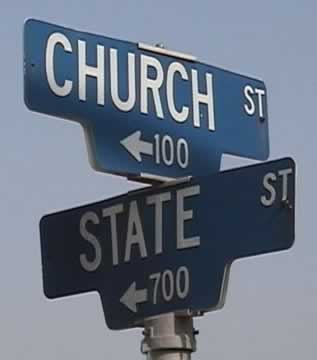
On October 5, 2011 the Supreme Court will face one of the most important religious liberties cases it has seen in over decades. Hosanna-Tabor Evangelical Lutheran Church and School v. Equal Employment Opportunity Commission (No. 10-553) addresses the ministerial exception and a religious institutions ability to discriminate against employees. The exception allows organizations to discriminate against ministerial personnel who violate their ideologies. In this case a teacher, Cheryl Perich, was fired after she returned from sick leave for narcolepsy. Even though Ms. Perich claimed to be fully recovered and her condition brought under control with medication, church officials requested she resign. She repeatedly refused and threatened the school with legal action. The church’s teachings state that disputes should be handled internally and not through the legal system. This insubordination led to her dismissal from the school. What the Court is examining is whether or not Ms. Perich’s responsibility were sacred or secular and if she should be included under the exemption.
What is under dispute specifically in the case may appear menial but its effects on the ministerial exemption and liberties of thousand of church employees can be massive. Hosana-Tabor v. EEOC does not serve as the clearest example for the violation of religious liberties, but it serves as an example of discrimination to occur within the workplace. A clearer example of this is would be what if a biology teacher at a religious school admitted to believing in evolution or a janitor in charge of cleaning the sanctuary came out as being homosexual. This ruling could give the church immunity against federal intervention on antidiscrimination laws. According to the Chronicle,
It would leave hundreds of thousands of teachers without the protection from discrimination and retaliation that Congress intended to afford them. They would be "unprotected against retaliatory dismissals" for activities such as reporting health violations or sexual abuse, or fighting for better pay. Nothing in the right of free association—or, indeed, in any right under the Religion Clauses—grants religious organizations such a sweeping exemption from neutral and generally applicable antidiscrimination laws.
I am very interested in seeing the outcome of the courts decision. In my opinion the church was not out of line for firing their employee after she threatened officials with legal action. There are reasons why institutions have policies such as Hosana-Tabor’s dispute process. Legal action brings about negative press to the church, which is why it prefers to deal with matters in house. Ms. Perich clearly violated this rule and her employment was appropriately terminated. What I fear is the free exercise of the church may expand too far. Should religious institutions be able to discriminate against whomever they want undermining the protections offered to employees by a wide variety of federal laws? Should have Reynolds been given the right to multiple wives?








